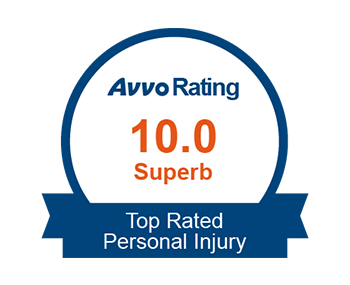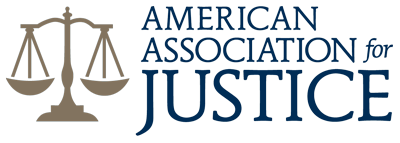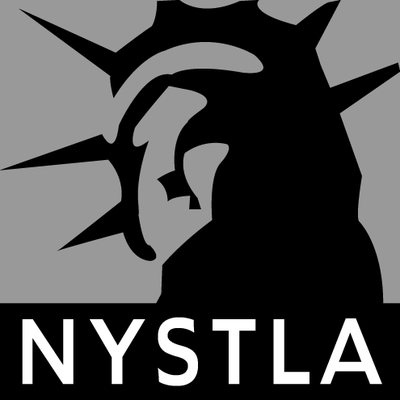Brain injuries can have a lasting and profound impact on a person’s life. When these injuries happen at work, the situation can become even more complicated. The effects of a brain injury often extend beyond physical health, impacting emotional well-being, relationships, and the ability to work. Understanding your rights and options if you have suffered a brain injury at work is critical. In the workplace, employers are expected to provide a safe environment, and when that is not the case, injuries can occur. If you or someone you know has experienced a brain injury at work, it is essential to understand the legal options available to you. Andrews, Bernstein & Maranto, PLLC is dedicated to providing compassionate support and skilled representation for individuals navigating the complexities of brain injury and workplace accident cases.
Understanding Brain Injuries in the Workplace
A brain injury can result from various situations in the workplace. Whether it’s from falling objects, slips and falls, or machinery accidents, brain injuries can happen suddenly. When the head experiences a direct impact or force, it can cause the brain to move within the skull, leading to damage. This damage can range from mild concussions to more severe traumatic brain injuries. Even what may seem like a minor head injury should not be taken lightly, as symptoms may develop later and worsen over time.
Brain injuries can affect a person’s cognitive abilities, memory, mood, and motor skills. People with brain injuries may find it difficult to concentrate, communicate, or perform tasks they once did with ease. Some may suffer from persistent headaches, dizziness, or even more severe complications like seizures or paralysis. Given the wide range of possible outcomes, anyone who experiences a head injury at work should seek medical attention immediately.
Employers have a duty to ensure that their employees are protected from preventable risks. This includes maintaining safe working conditions, providing the necessary training, and ensuring that protective equipment is available. When an employer fails to meet these expectations, workplace accidents, including brain injuries, are more likely to occur. If a workplace injury happens, workers are often entitled to compensation. However, navigating this process can be complex, especially when dealing with the effects of a brain injury.
Your Rights After a Brain Injury at Work
When you suffer a brain injury at work, it is important to know your rights. Workers in most industries are protected by workers’ compensation laws. These laws are in place to provide financial support to employees who have been injured while performing their job duties. Workers’ compensation can cover medical bills, lost wages, and rehabilitation costs. It is important to report your injury to your employer as soon as possible to start the process of filing a claim.
Workers’ compensation benefits are available regardless of who was at fault for the accident. This means that even if the injury was caused by your actions or a co-worker’s mistake, you are still entitled to compensation. However, in some cases, workers’ compensation may not fully cover the extent of the injury, especially when it comes to long-term care or rehabilitation. This is particularly true in cases of severe brain injuries, where ongoing medical treatment may be needed for years to come. If your injury was caused by the negligence of a third party, such as a contractor or equipment manufacturer, you may be able to file a personal injury lawsuit in addition to your workers’ compensation claim.
A personal injury lawsuit allows you to seek additional compensation for pain and suffering, emotional distress, and other damages that workers’ compensation may not cover. This is important for individuals who may face long-term challenges or disabilities as a result of their injury. Navigating both workers’ compensation and personal injury claims can be confusing, which is why it’s helpful to have legal guidance during this process.
The team is very personable, patient and empathetic with their clients. They are upfront with you and will explain the entire process with you, they never lead you to believe otherwise, they tell you like it is and will not sell you a million dollar dream. Trust in Andrews, Bernstein & Maranto, PLLC, they work for you and he looks out for your best interest.” - Jane D.
Filing a Workers’ Compensation Claim
The first step after suffering a brain injury at work is to report the injury to your employer. This report should be done as soon as possible, as delays can affect your ability to receive benefits. Once the injury is reported, the employer should provide you with the necessary forms to file a workers’ compensation claim. It is important to complete these forms thoroughly and accurately, as any mistakes could delay or complicate your claim.
After filing the claim, you may be asked to undergo a medical examination to assess the extent of your injuries. This evaluation helps determine the type of treatment you will need and whether you can return to work. If the injury prevents you from working, workers’ compensation can provide temporary or permanent disability benefits. These benefits are designed to replace a portion of your lost income while you recover.
It is important to understand that workers’ compensation does not automatically cover everything. There may be limits to the types of treatment covered, and disputes may arise over the extent of your injuries. If your claim is denied, you have the right to appeal the decision. This process can be challenging, particularly when dealing with a brain injury, so having legal representation can help ensure that your rights are protected.
Should I Take The First Settlement Offer? Steps to File a Personal Injury ClaimRelated Videos
Legal Options Beyond Workers’ Compensation
In some cases, the compensation provided through workers’ compensation may not be enough to cover all the costs associated with a brain injury. This is especially true for severe injuries that require long-term medical care, rehabilitation, or specialized treatment. If your brain injury was caused by negligence, you may have the option to file a personal injury lawsuit to seek additional compensation.
A personal injury lawsuit allows you to hold the responsible party accountable for their actions. This could include a negligent employer who failed to maintain safe working conditions or a third-party contractor whose actions led to the accident. In these cases, a lawsuit can provide compensation for medical expenses, pain and suffering, lost wages, and other damages that workers’ compensation does not cover.
Filing a personal injury lawsuit can be a complex process, especially when dealing with the effects of a brain injury. It requires gathering evidence, medical records, and witness statements to build a strong case. This is why it is important to seek legal guidance to ensure that your rights are protected and that you receive the compensation you deserve.
Verdicts & Settlements
The Importance of Medical Treatment and Documentation
Receiving proper medical treatment after a brain injury is essential. Even if the injury seems minor, it is important to be evaluated by a medical professional. Brain injuries can worsen over time if not treated properly, and early intervention can help prevent long-term complications. Following your doctor’s recommendations and attending all medical appointments is crucial to your recovery.
In addition to receiving medical treatment, it is important to keep thorough records of your injury, treatment, and recovery process. Documentation is key when filing a workers’ compensation claim or a personal injury lawsuit. Medical records, treatment plans, and doctor’s notes can provide evidence of the severity of your injury and the impact it has had on your life. This documentation will be essential in proving your case and ensuring that you receive fair compensation.
Brain injuries can have a significant and lasting impact on your life, especially when they occur at work. Navigating the legal system can be overwhelming, particularly when dealing with the physical and emotional toll of a brain injury. At Andrews, Bernstein & Maranto, PLLC, we understand the challenges you may be facing and are here to help. Whether you need assistance with filing a workers’ compensation claim, pursuing a personal injury lawsuit, or understanding your legal rights, we are committed to providing the support and guidance you need.
Our experienced team of attorneys is dedicated to helping injured workers receive the compensation they deserve. We know that every case is unique, and we take the time to understand your specific needs and circumstances. If you have suffered a brain injury at work, don’t wait to seek legal advice. Contact Andrews, Bernstein & Maranto, PLLC today to discuss your case and explore your options for recovery. Let us help you get the compensation you need to move forward with your life.












